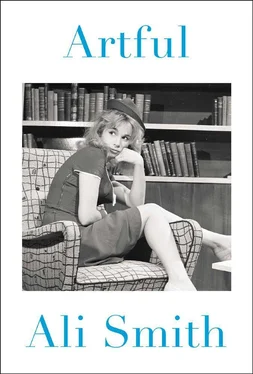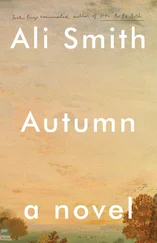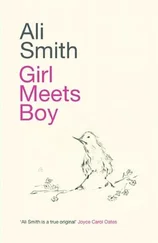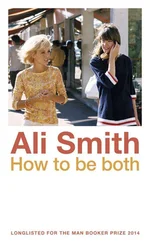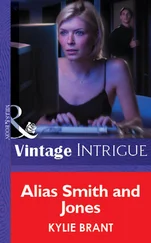Born in the morning…by midday Hermes had invented the lyre. Getting up from his cradle, he ventured out and found a tortoise. He killed it and scooped out the flesh. Then he found a goat and beheaded it. He put the curved horns of the goat through the front leg-holes of the tortoise-shell, and he made strings of the goat’s guts.
The next thing he does is steal — his first theft is a herd of cows, from Apollo. Apollo catches him, and while they’re arguing about the cows, Hermes starts strumming the lyre. That’s nice, Apollo says. If I can have that thing you’ve made, we’ll forget about the cattle, they’re yours.
God of quick-wittedness, god of the musical potential of the shells of dead things, god of getting a tune out of goat-guts, but above all god of perfect timing, god of canny slippage, god of changing the subject. Lavinia Greenlaw, in this poem called The Messenger God, sees Mercury, Hermes, as god of response and responsiveness:
How do you know?
He is ahead and to the quick.
What impression?
Grave, fissile.
Easily divided?
In that he responds.
His message?
His presence. No other message.
To what purpose?
Glass in a city of water and sky.
What need of him?
I must enter the city.
To what purpose?
Water and sky.
In this series of ritualized, gnomic questions and responses, Greenlaw discusses the nature of how we know anything. Because of this messenger going ahead of us, whose quickness is a reminder that alive and very fast both sometimes mean the same thing, we are able not just to know but to see where we are and where we’re living. With this mercurial god, division comes to mean response. His presence allows transparency, protection, a seeing through something and an act of seeing something through.
At one level reflection means we see ourselves. At another, it’s another word for the thought process. We can choose to use it to look into the light of our own eyes, or we can be light sensitive, we can allow all things to move over and through us; we can hold them and release them, in thought. Broken things become pattern in reflection. The way a kaleidoscope works is to allow fragmentary or disconnected things to become their own harmony. Cross an artist with a fighter plane and — as with Fiona Banner’s Jaguar (2010), her sculpture installation of a burnished Sepecat Jaguar fighter aircraft on the floor on its side — you’ll get an unexpected reflective surface. It’s one you can see yourself in — or rather, one placed so that you can’t not see a version of yourself in it; a reminder of what weaponry is, what it means in real terms, and what humankind is, what it means in real terms.
Here’s to the ‘wreathed trellis of a working brain’: that’s what Keats called it in Ode to Psyche. Here’s to what George Mackay Brown said about how he spent his days: ‘I assure you, there are few jobs in life like the leafing and blossoming of the imagination.’ Here’s to what Clarice Lispector (in her 1977 novel, The Hour of the Star, translated by Giovanni Pontiero) said: ‘So long as I have questions to which there are no answers, I shall go on writing.’ Here’s to what Edwin Morgan said: ‘Forget your literature? — forget your soul.’ He said this in a poem called Retrieving and Renewing. Here’s to what David Constantine said in his work on why the arts matter: ‘no society that I know of has done without poetry, which must mean it can’t be done away with (some have tried) or done without.’ Here’s to this poem by Paul Eluard, translated by Stuart Kendall, about the nature of storytelling, or of all telling:
I told you for the clouds
I told you for the sea tree
for each wave for the birds in the leaves
for pebbles of noise
for the familiar hands
for the eye that becomes a face or a landscape
and the sleep that renders the sky from its color
for the entire drunken night
for the grid of the roads
for the open window for an uncovered face
I told you for your thoughts for your words
every caress every confidence endures
Here’s to the place where reality and the imagination meet, whose exchange, whose dialogue, allows us not just to imagine an unreal different world but also a real different world — to match reality with possibili
That’s as far as you got. That was it over.
I’d read all of you, now.
And now the hand that traces these words, falters, as it approaches the conclusion of its task; and would weave, for a little longer space, the thread of these adventures.
I woke up at about eleven the next morning. When I came downstairs, Oliver! was still on freeze-frame. The screen had been glowing that same picture, of the moment the window in the undertaker’s cellar opens in the snow, out into the living room all night.
I switched it off. I got my new copy of Oliver Twist down off the shelf. (I had a new copy now, I’d shelved it next to the old fallen-apart copy. I hadn’t actually opened the new copy yet.) I’d decided, last night, as I was falling asleep, that I’d finally finish that novel, that when I woke up it would be the first thing I’d do.
The first thing I noticed when I flicked the brand-new copy open was the word Mudfog. It was in the very first line, the word. It was the name of the place Oliver was born. But in my other copy Dickens had made a point of not mentioning the name of the place that Oliver was born. I remembered that from starting this book last summer — all those months ago.
Mudfog. I went and got my old falling-apart copy off the shelf to check. ‘Among other public buildings in the town of Mudfog.’ ‘Among other public places in a certain town which for many reasons it will be prudent to refrain from mentioning.’ I held the old copy in one hand and the newer copy in the other and I laughed. It was as though there was an argument, a discussion, literally happening between the copies, like the book itself, Oliver Twist, was weighing up and still undecided about the things it was going to say.
I made coffee. I phoned up work and told them I’d overslept. They put me straight through to Sandra. I got reprimanded quite sharply down the phone then congratulated on being honest enough not to make up a cold or a flu.
Come in by 2 pm and I’ll pretend it didn’t happen, she said.
Can I come in after I’ve finished Oliver Twist? I said.
After what ? she said. Now you’re really pushing your luck. No you can’t. Come in right now.
Oh. Okay, I said.
There was a pause.
Well how many pages exactly have you got to go? she said.
Not much, I said. Twenty pages. Thirty. Well, thirty-seven.
It’s good, Oliver Twist, she said. Okay, but be in here as soon as you’re done.
When I came off the phone to work, I went online (really quickly) and looked up some local language schools. I wrote an email to one and asked did they teach basic Greek and could they teach someone like me from scratch. They wrote back very fast and very keenly. I suppose in this recession not very many people are taking language classes or thinking about learning new languages.
Soon I’d know a new alphabet; soon, working from a book meant for five-year-olds, I’d be learning how to say some very simple sentences. Concurrently I’d also be learning a whole other kind of Greek since my teacher would turn out to be an Aliki Vougiouklaki fan, having grown up with her films like I grew up with Oliver! and would use songs from these films to teach me as well as this basic grammar book, which meant that soon, along with the verbs for to have and to want, along with sentences like I have a book, I have a pencil, I want a notebook , I’d know the words for unkissed boy and be able to say things like the swallows have written it on the skies, for the first time, my heart is shining inside me and a lemon tree will bloom in the neighborhood . That last line, about the lemon tree, is from the song called Ypomoni, or Patience, it’s written by Stavros Xarhakos and Alekos Sakellarios, and, roughly translated (by me myself actually), it goes:
Читать дальше
